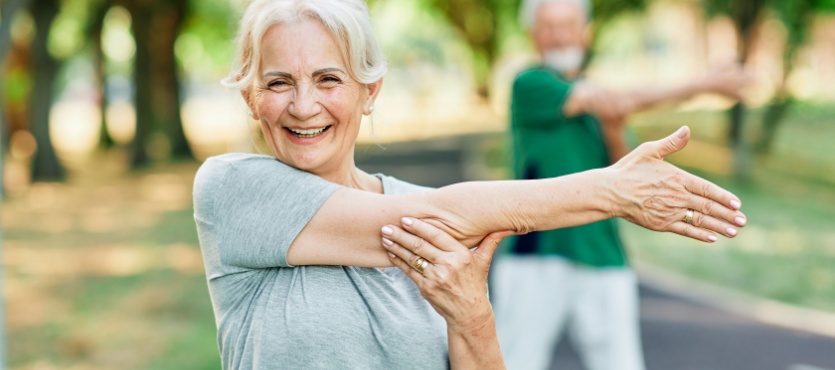As we age, maintaining mobility and overall health becomes increasingly important, and regular exercise plays a crucial role in achieving these goals. Engaging in physical activity helps seniors preserve their independence, reduces the risk of chronic diseases, and enhances mental well-being. Exercise has the potential to improve social connections, which are vital for emotional health. Incorporating physical activity into daily routines offers a wide range of benefits, from enhancing physical strength to improving mental well-being.
Enhancing Physical Strength and Balance
One of the most significant benefits of regular exercise for seniors is the enhancement of physical strength and balance. As we age, muscle mass naturally decreases—a condition known as sarcopenia—which can lead to a higher risk of falls and injuries. Engaging in strength-training exercises, such as resistance training or bodyweight exercises, helps to preserve muscle mass, improve bone density, and increase overall stability. This, in turn, reduces the risk of falls and enhances the ability to perform daily tasks with ease.
Improving balance through exercises like tai chi or yoga is also crucial. These activities enhance proprioception, which is the body’s ability to sense its position in space, and help in preventing falls, a common cause of injury in older adults. Balance exercises often involve slow, controlled movements that strengthen the muscles and improve coordination. Over time, consistent practice can lead to better posture and a reduced risk of falls, significantly contributing to a senior’s ability to live independently.
Boosting Cardiovascular Health
Cardiovascular exercises, such as walking, swimming, or cycling, are essential for maintaining a healthy heart and improving circulation. As we age, the risk of developing cardiovascular diseases, such as hypertension, coronary artery disease, and stroke, increases. Regular aerobic activity helps to lower blood pressure, reduce cholesterol levels, and decrease the risk of heart disease and stroke. For seniors, incorporating moderate-intensity cardiovascular exercises into their routine can significantly improve heart health and overall endurance.
Walking is one of the most accessible forms of cardiovascular exercise for seniors. It requires no special equipment and can be done almost anywhere. Regular walking, even at a moderate pace, can improve circulation, help control weight, and reduce the risk of chronic diseases. Swimming is another excellent option, particularly for those with joint pain or arthritis, as it provides a low-impact way to get the heart pumping without putting stress on the joints.
Supporting Mental Well-being
Exercise is not just beneficial for physical health; it also has a profound impact on mental well-being. Regular physical activity has been shown to reduce symptoms of anxiety and depression, improve mood, and boost cognitive function. For seniors, staying active can help combat feelings of loneliness and isolation, promoting a positive outlook on life and enhancing overall mental health.
Mental well-being is often compromised as individuals age, with factors such as retirement, loss of loved ones, and decreased physical ability contributing to feelings of loneliness and depression. Exercise, particularly when done in a group setting, offers an opportunity for social interaction, which is vital for maintaining mental health. Group exercise classes, such as senior aerobics or yoga, not only provide physical benefits but also create a sense of community and belonging, helping seniors feel connected and supported.
Moreover, physical activity has been linked to improved cognitive function. Studies have shown that regular exercise can help slow the progression of cognitive decline and reduce the risk of dementia. Exercise increases blood flow to the brain, which is essential for cognitive health, and stimulates the production of brain-derived neurotrophic factor (BDNF), a protein that supports the growth and survival of neurons. Activities like dancing or aerobics, which require coordination and memorization, are particularly beneficial for brain health as they combine physical activity with cognitive challenges.
Enhancing Quality of Life through Exercise
Incorporating regular exercise into daily routines offers numerous benefits for seniors, from improving physical strength and cardiovascular health to boosting mental well-being and enhancing social interaction. By staying active, seniors can maintain their mobility, independence, and overall quality of life as they age. For more information or to learn about the services we offer, please contact Trust USA Home Health.

